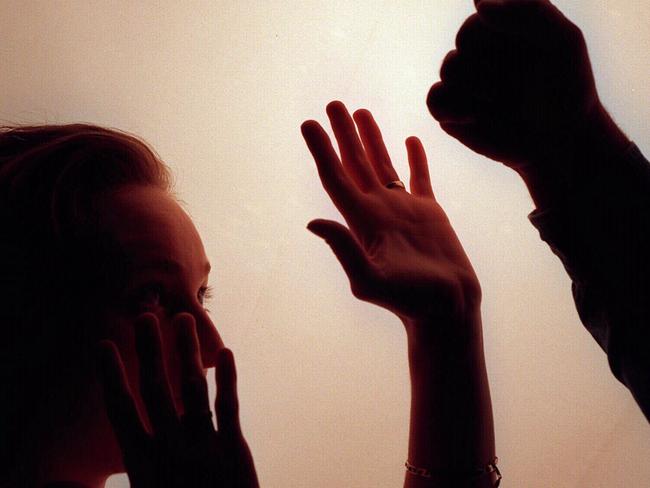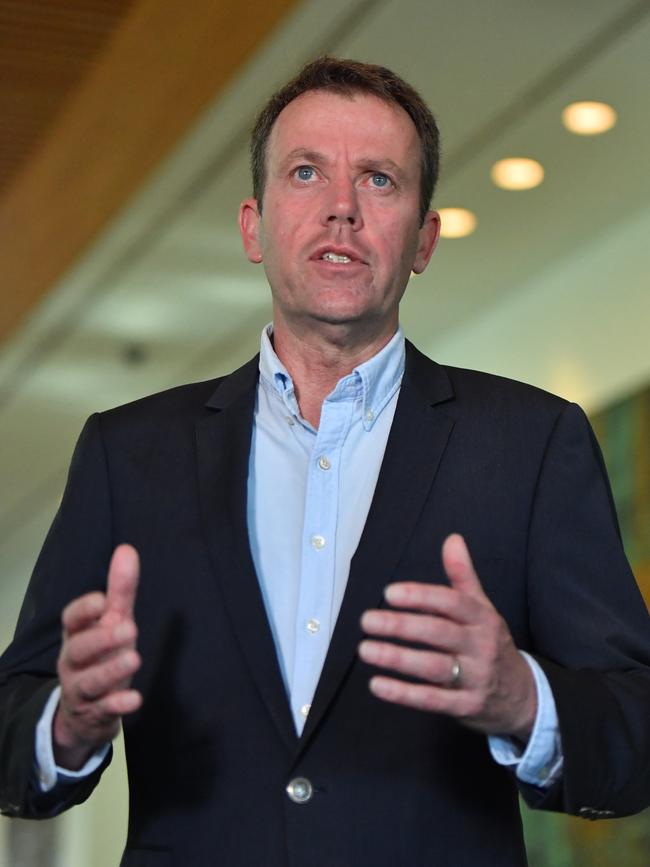Kids at risk of DV or exposure to drugs within families need to be at school, says education minister
For some children, home schooling is dangerous and being at school is simply the safer option, Australia’s Education Minister has warned.
QLD News
Don't miss out on the headlines from QLD News. Followed categories will be added to My News.
TRUANCY and domestic violence make homeschooling dangerous for some kids who are “safer at school’’ during the coronavirus lockdown, federal Education Minister Dan Tehan warned this morning.
Mr Tehan called on state governments to reopen schools for all families who want to send their children to class.
In Queensland, at least 80 per cent of students are being homeschooled for the next month after the State Government decreed that only the children of “essential workers’’ who can’t supervise their kids at home, or “vulnerable children identified by schools” or who are in the Child Safety or juvenile justice systems, can go to class.
FAMILIES FORCED TO HIRE LAPTOPS FOR HOMESCHOOLING
But Mr Tehan said the strict definition of “vulnerable’’ meant that some kids could be in danger at home from violent or drug-addicted parents.
“With domestic and family violence, school is a shelter for those children,’’ he told The Sunday-Mail yesterday.
“Some parents need schools to provide safety in the classroom for their children, without needing to ring up or put special cases (to the principal).
“They just need to be able to send their children to school when it’s the safest place for their children.’’

Mr Tehan – who has no control over state school operations – said schools need to reopen for “classroom teaching’’ by June 1 at the latest.
“Whether it is parents battling substance abuse, if they have mental health issues, and in migrant communities where English is a second language, they are vulnerable cohorts who would fall behind,’’ he said.
“We need teachers back teaching in the classroom.
“Teacher unions should stop, pause and consider their actions could have a very detrimental impact on many students right across the nation.’’
COPS CALLED FOR COVID-19 TRUANCY
BOSSES WANT KIDS BACK TO SCHOOL
Mr Tehan said he worried that truanting teenagers might never go back to school after the COVID-19 closures.
“One of the risk is that children who might have been wagging school, sadly what that leads to is complete disengagement from school,’’ he said.
Mr Tehan said the fact that many schools had simplified lessons for learning at home showed the need to simplify the curriculum.
“One of the key learnings from COVID-19 is that it is possible to streamline the curriculum and focus on the essentials students need for their education, in particular literacy and numeracy,’’ he said.
Mr Tehan said he had great respect for teachers, and it was important that children get back to school to learn and socialise.
“The social side of schooling is often understated, but that’s where children learn about friendships, relationships, sharing and caring,’’ he said.
Education Queensland has not yet compiled statewide truancy data for the first week of homeschooling.

Queensland Education Minister Grace Grace said it was “ridiculous and flat-out wrong to suggest that families with domestic violence or mental health issues have to ask the principal for special permission to send their kids to school’’.
“The definition of vulnerable children has always enabled schools to be flexible to ensure children at risk are able to attend school,’’ she said.
“We have also set up seven regional taskforces to support schools who may have concerns about students at risk who are enrolled at their school.’’
Education Queensland has sent schools a three-page directive which says at-risk students could include those in the care of Child Safety, kids subject to youth justice orders, with “identified mental health or wellbeing difficulties’’ or with a disability.
Queensland Premier Annastacia Palaszczuk said on Monday that “if you are uncertain about whether your children should be going to school, contact your principal, we’ve said that all along’’.
State Opposition leader Deb Frecklington said any child wanting to go to school should be allowed to attend, but Labor’s “school bungle is making it even easier to skip school’’.
“The sad truth is not every child has a parent keeping an eye on them, let along teaching them,’’ she said.
“The Palaszczuk government needs to start thinking about the kids who are being left behind by the confusing advice around schools.’’
According to Education Queensland, vulnerable children include children identified by schools or who are currently receiving services from Child Safety, including children who are subject to a child protection order, are subject to a youth justice order (and) children in designated Indigenous communities.



